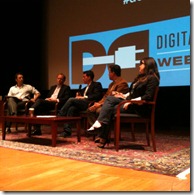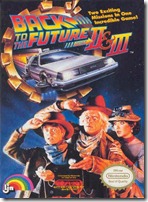Fittingly, Digital Capital week finished out it’s “Media 2.0” day with a look into the not-so-distant future. “The Future of Media”, a panel with representatives from CNN , AOL , the Washington Post and Washington Life Magazine, seemingly taken from the core of old guard media, made attendees curious to see what exactly the future holds in store for both upcoming social media platforms and on-the-cusp-of-change traditional media outlets.
 One major deviation from the group of traditional media strongholds was Jim Bankoff, founder and CEO of Sbnation.com , a new site focusing on local blog coverage of sports. Now the fastest growing online sports network, SB Nation has exploded onto the scene and is changing the way many people think about obtaining online sports coverage. He argued that sites such as SB Nation, which bring coverage closer to the local consumer, are a sign that “In 5-10 years, we won’t even think about the Internet, because everyone will have it and it will be everywhere.” Bankoff was also by far the best received panelist, with Twitterslurp reflecting it clearly, including tweets such as “I’ve said it before and I’ll say it again: Pay close attention to @Bankoff and what’s happening at SB Nation.” (@bydanielvictor )
One major deviation from the group of traditional media strongholds was Jim Bankoff, founder and CEO of Sbnation.com , a new site focusing on local blog coverage of sports. Now the fastest growing online sports network, SB Nation has exploded onto the scene and is changing the way many people think about obtaining online sports coverage. He argued that sites such as SB Nation, which bring coverage closer to the local consumer, are a sign that “In 5-10 years, we won’t even think about the Internet, because everyone will have it and it will be everywhere.” Bankoff was also by far the best received panelist, with Twitterslurp reflecting it clearly, including tweets such as “I’ve said it before and I’ll say it again: Pay close attention to @Bankoff and what’s happening at SB Nation.” (@bydanielvictor )
The other panelists had interesting perspectives as well, and offered differing views as to how the future of media will turn out. Martin Durkin of AOL spoke about the changing definition of the “citizen journalist” when it comes to user-generated content. He told the DC Week panel that “soon there will be a professional-ization of the citizen journalist model” but that “The question is: are some of these enterprises able to make the citizen journalism model work in an environment where they’re already lurching for the buyout?” His answer: “I don’t think so.” Similar views came from Meredith Artley , managing director of CNN.com, who, when asked if content was still “king”, replied that “the story always comes first, so content is king. But the conversation that is more interesting is what is going on with that content after we publish it?” She also agreed that within 5 years, the internet will be the foremost example of ubiquity. Moderator Michael Clements , Executive Editor of Washington Life magazine made an interesting point as well, mentioning that the information age “does not turn us into media companies” as some people think, but in fact “turn is into media networks” which he argues are far more influential. Vijay Ravindran , VP of Digital Media at the Washington Post, remarked on the coming re-monetization of media. “For every person who chooses not to buy the print magazine and instead goes online,” he said, “your organization will make less money.” Because of this recent change to the model, we are “in the grand experimental stage of paid access to media” and that the switch from free access to paid will be a major turning point in the future of media.
 One sign of the future of media? The advent of the so-called “tweckle”, a portmanteau of “tweet” and “heckle” and a phenomenon which made itself known during the third panel of the day. With tweets entering the Twitterslurp such as “Funny. Attending The Future of Media session (w/AOL, CNN, Wash Post) and not hearing a word about the future. What a shame” (@Karpantschof ) and “If #dcwfom panelists are in charge of the future of media and advertising, RUN don’t walk to your broker and SELL your stock!” (@darthcheeta ) Although the future of media is a compelling issue, all it seemed to provoke amongst DCWeek 2010 panel attendants was frustration.
One sign of the future of media? The advent of the so-called “tweckle”, a portmanteau of “tweet” and “heckle” and a phenomenon which made itself known during the third panel of the day. With tweets entering the Twitterslurp such as “Funny. Attending The Future of Media session (w/AOL, CNN, Wash Post) and not hearing a word about the future. What a shame” (@Karpantschof ) and “If #dcwfom panelists are in charge of the future of media and advertising, RUN don’t walk to your broker and SELL your stock!” (@darthcheeta ) Although the future of media is a compelling issue, all it seemed to provoke amongst DCWeek 2010 panel attendants was frustration.
Sign up today to have our latest posts delivered straight to your inbox.